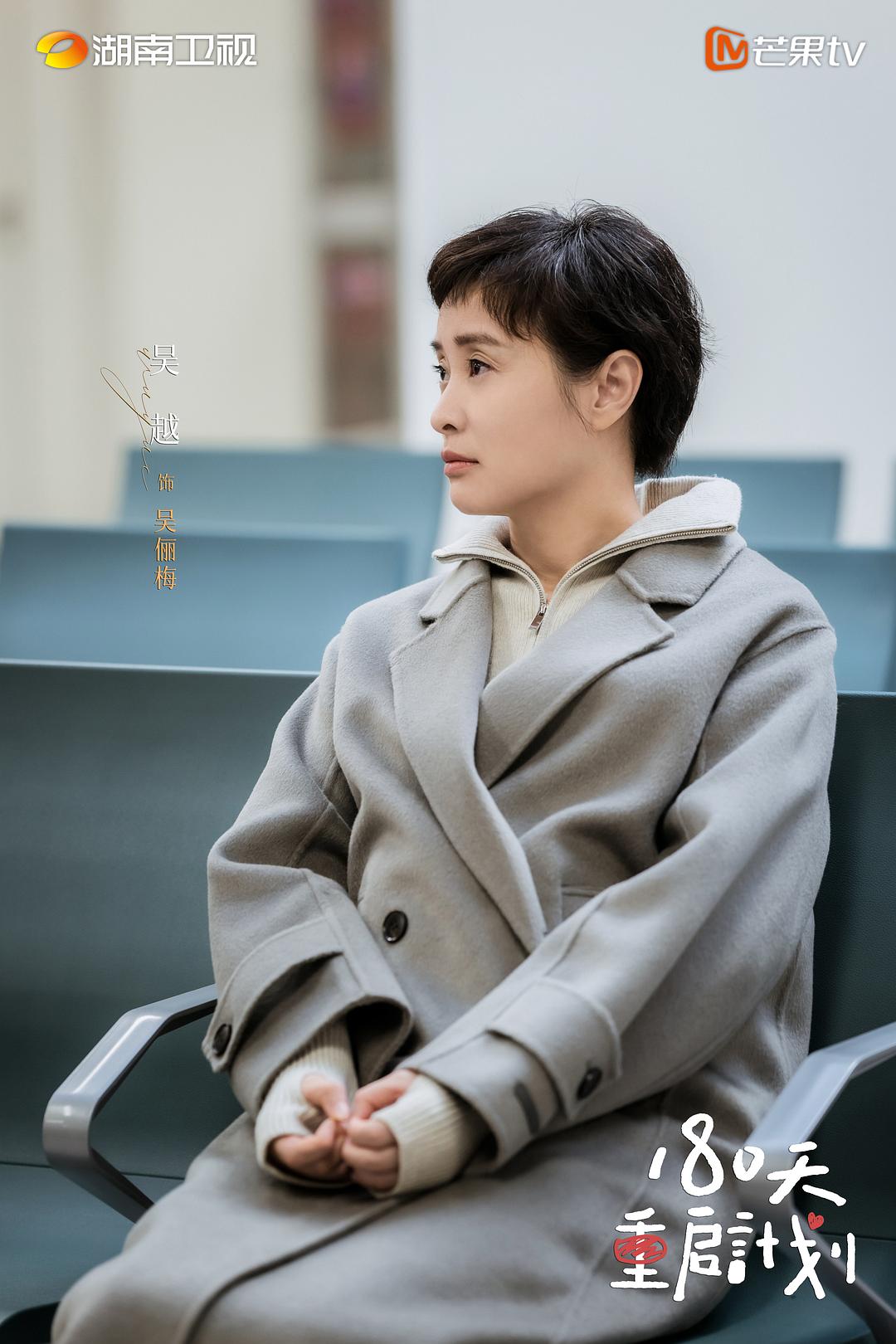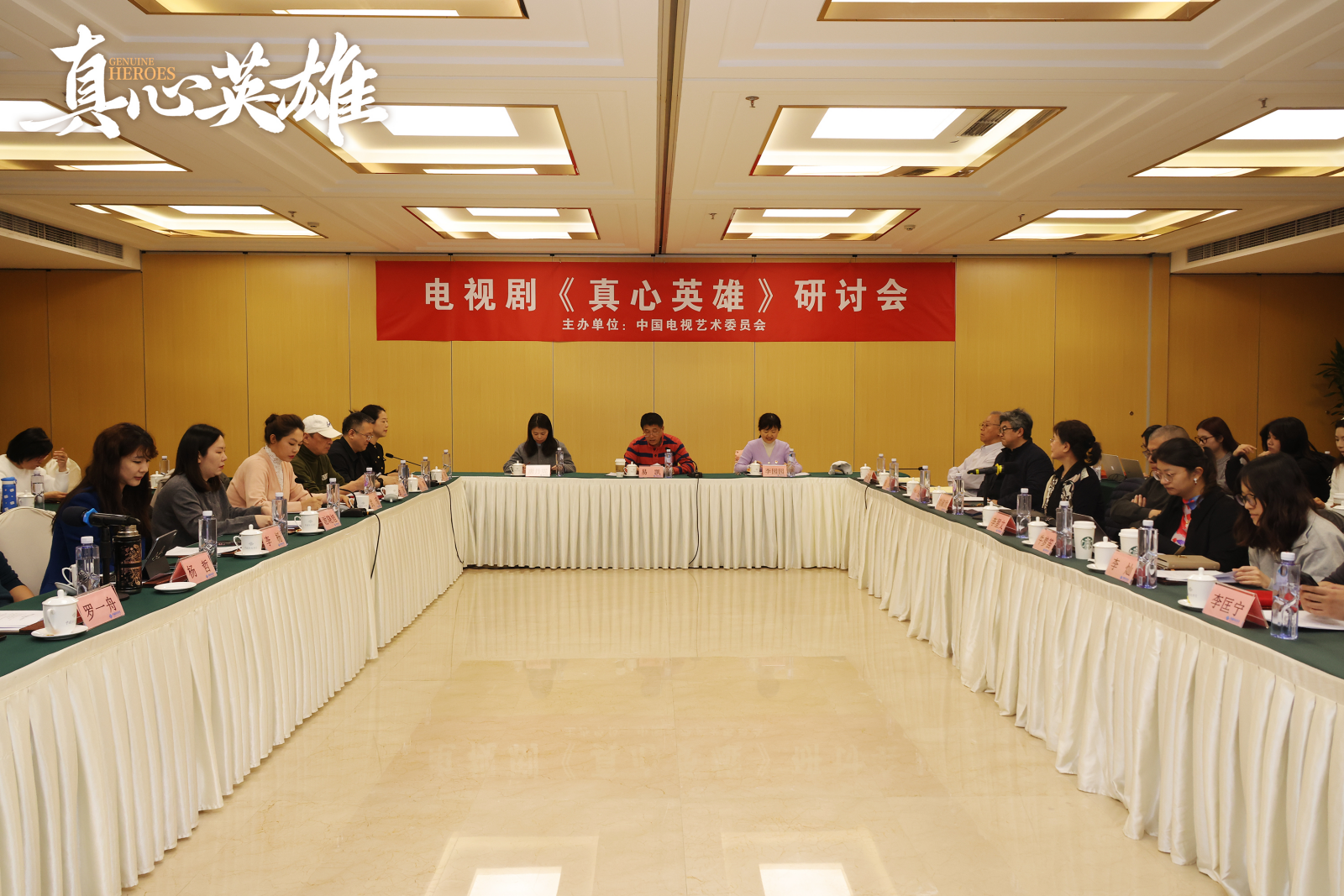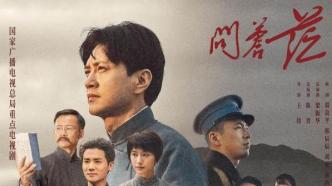
[This article comes from the WeChat public account "Shu Lin Zhai" (Kongli1996) and is reprinted by The Paper with authorization. Please contact "Shu Lin Zhai" for reprinting. 】
I brought a hundred couples with me to travel and recall the glorious past.
This word is about nostalgia, longing for the past thirty years. This word is also a farewell, a farewell to all existing paths in the past. If I had not made up my mind to take a new path, I would not have written such sad words in 1925 when the revolutionary situation seemed to be great.
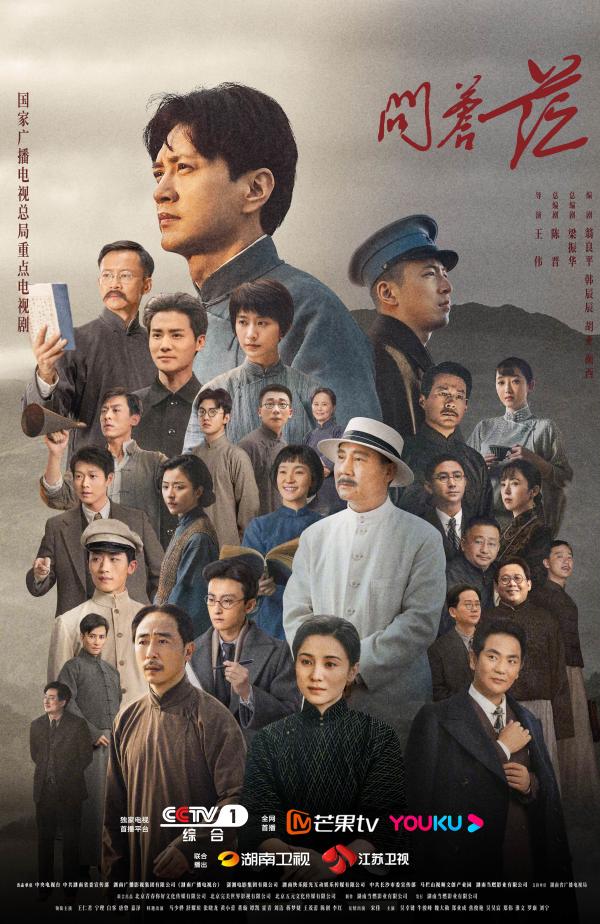
"Ask the Cang Mang" poster
This year marks the 130th anniversary of the birth of Mao Zedong. As a tribute drama, "Ask the Cangmang" is very good. We have seen too many movies and TV shows about Mao Zedong before the founding of the Party, and we have also seen more movies and TV shows about Mao Zedong after he went to Jinggangshan. But if we cannot understand what he encountered in the six years from 1921 to 1927, we It is impossible to truly understand how an intellectual could resolutely go to Jinggangshan.
"Ask the Cangmang" shows this little-noticed history from an extremely grand perspective and extremely accurate details. Its positioning is: (Mao Zedong) acted as a "pathfinder" and "early traveler", starting from the beginning. A historical story about a follower who grew up to be a pioneer and a pioneer, and explored the correct path of the Chinese revolution.
From early travelers to pioneers.
Let me translate: the process of gradually growing from an intellectual and strategist to a strategist and revolutionary.
What are political strategists and intellectuals?
Before answering this question, we might as well think about a question first: Why did the Anyuan coal miners' strike launched by Mao Zedong, Li Lisan, and Liu Shaoqi succeed, while the Beijing-Hankou Railway workers' strike ended in the failure of the February 7th tragedy?
The answer to this question forms the main core thread of the first six episodes of the show.
Let me start with a side character.
Zhao Hengti.
Zhao Hengti can be said to be the best-drawn villain in the show so far. His total appearance time is less than twenty minutes, but he shows a very multi-faceted image. The multifaceted aspects here are not what many young intellectuals long for. They are pale depictions of the villain’s love, hate, character formation and other personal characteristics (such as some very minor details that are unimportant, such as his attitude toward family and friends). Especially when portraying a historical figure.
Yes, this drama very straightforwardly expresses that he is the villain, but this villain is not a stick figure in many previous movies and TV shows, but directly shapes Zhao Hengti's personal interests in this series of events.
Let’s take a look at two scenes about Zhao Hengti.
The scene in which Zhao Hengti appeared was as follows: The manager of the No. 1 Cotton Mill came to Zhao Hengti, Commander-in-Chief of the Hunan Army and Governor of Hunan Province, with his accounts, and told Zhao Hengti that because of the general strike organized by Huang Ai and Pang Renquan, Zhao Hengti's family's dividends had also been lost. A lot less, so he hopes to get Zhao Hengti's support to suppress Huang Pang.
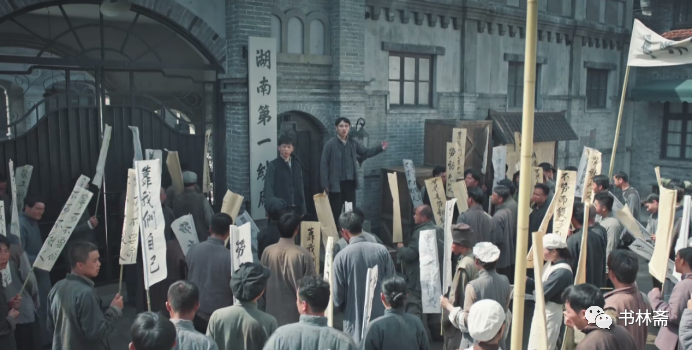
This scene may seem unremarkable, but several of its details point to a very clear conclusion.
The first detail is that the manager said that Huang Ai and his wife have been causing trouble for the past six months. Keywords, most of the year. This time point accurately represents the recovery time of the first spinning mill.
Although Hunan's heavy industry is very strong now, more than a hundred years ago, Hunan was actually a province of light industry, in which the textile industry dominated. The first spinning mill in Hunan was the first modern machine-based cotton spinning enterprise in Hunan.
Hunan No. 1 Cotton Mill was originally a factory run by government officials in 1912. Later, with the changes in the political situation in Hunan, it was unable to start operations. After Zhang Jingyao was driven away in 1920, Tan Yankai and Zhao Hengti took over the mill and decided to hand it over. It was assigned to a private company as an agent and planned to officially open in early 1921.
Pay attention to the timeline. This scene took place in the autumn of 1921, which was exactly half a year from the beginning of 1921. It can be seen from this that the time direction in this scene is very clear. Although the interim governor at the time was Lin Zhiyu, and there were regional conflicts among workers in Hubei and Jiangsu behind the incident at the No. 1 Cotton Factory, this did not prevent the play from being adapted to a certain extent and retaining the most important clues:
The biggest hidden stock in Hunan No. 1 Cotton Mill must be in the hands of Zhao Hengti’s family. Because Zhao Hengti only truly took control of Hunan's military power in 1920.
The second detail is that the manager said that the wife was very dissatisfied.
The manager did not directly explain the reason, but first emphasized a lady who did not appear on the stage.
Why the emphasis on Mrs.? Zhao Hengti's wife is Tong Xihan, and Tong Xihan's brother is Tong Xiliang. Tong Xiliang graduated from the artillery department of the Japanese Army Non-commissioned Officer School and had a deep friendship with the warlords from all over the world. More importantly, he was the bridge between Zhao Hengti and Tan Yankai (the former Hunan speaker who was forced away by Zhao Hengti). Although Tan Yankai was forced to leave, a large number of his team members are still in Hunan's military and political circles. Tong Xiliang himself is the military minister of Hunan Province. Under this situation, if Zhao Hengti wants to stabilize his rule in Hunan, he must establish a good relationship with this group of Tan Yankai's old team, and then slowly make plans for it.
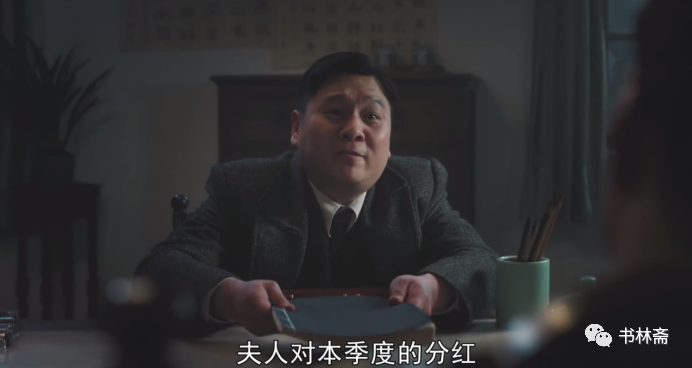
Therefore, with such a high stakes situation, Zhao Hengti turned from his initial impatience to taking it seriously, and finally made the decision to suppress it.
The play, which lasts only one and a half minutes, actually contains a lot of information. Although film and television dramas are about being easy to understand, the threshold of this drama is indeed not low, and it actually revealed Zhao Hengti's network of interests in Hunan.
You must know that although Zhao Hengti is from Hunan, he has never been in charge of affairs in Hunan before. After he returned to China from Japan, he went to Guangxi and then participated in the Revolution of 1911. His foundation in Hunan is far inferior to that of Tan Yankai, Cheng Qian and others. of.
Another highlight of Zhao Hengti's career occurred during the Guangdong-Hankou railway workers' strike launched by Mao Zedong, Guo Liang and others.
The 1922 Guangdong-Hankong Railway workers' general strike took place on September 9. Mao Zedong sent Guo Liang, a party member of the Changsha branch, as the secretary of the Yuezhou Workers' Club on the Guangdong-Hankong Railway, and soon established the All-Road Workers' Club Federation.
On September 9, the general strike began. Although Yuezhou (today's Yueyang) is in Hunan, in fact Yuezhou and Hubei are also very closely connected (it belonged to Jinghu North Road in the Song Dynasty, and Yueyang and Hubei are very close to this day) ), so although the strike was in Hunan, the one most affected was not Zhao Hengti in Hunan, but Xiao Yaonan in Hubei.
Xiao Yaonan was from Wu Peifu and was directly connected to the Northern Army. Although Zhao Hengti and the Northern Army were in a state of cooperation, the purpose of the cooperation was to prevent the Northern Army from entering Hunan, not to rescue the Northern Army. Zhao Hengti's real serious trouble lies in the south, in Tan Yankai, in Hengyang, and in the Guangdong Army.
Therefore, the Yuezhou workers' strike actually gave Zhao Hengti an opportunity to negotiate prices with the Beijun Army. Especially when our party took advantage of this contradiction, it emphasized that it would not target the Hunan military and that all military supplies would be available as usual. In fact, it was giving Zhao Hengti the opportunity to negotiate prices. Words: We are not in conflict with each other on this matter.
Sure enough, in the end, the Guangdong-Han Railway workers' strike concentrated on the Hubei Railway Bureau and the Hubei warlord Xiao Yaonan. Xiao Yaonan was isolated and helpless and had no choice but to surrender and agree to all conditions. The Guangdong-Hankong railway workers' strike was victorious.
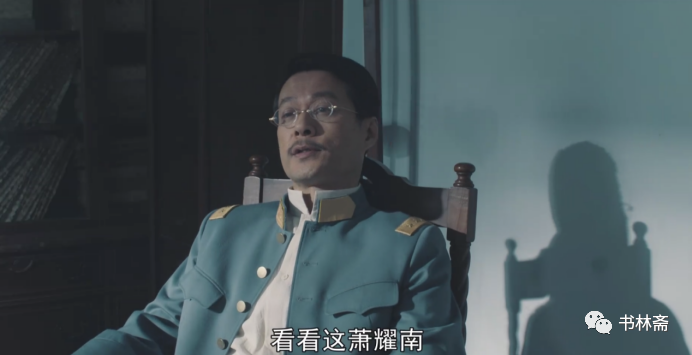
Let us make a comparison and we can intuitively find that Zhao Hengti's attitude towards the labor movement is not a direct and single response, but a very specific and targeted response. Some strikes are not good for you, and some strikes are good for you. And our party has made full use of this in its specific work.
Here we need to popularize the history of Zhao Hengti.
As mentioned above, before Zhao Hengti, the local talkers in Hunan were Tan Yankai and Cheng Qian. As a warlord of the Anhui faction, Zhang Jingyao was an outsider, so he was quickly driven away collectively by all walks of life (including Wu Peifu, who was in Hengyang at the time) (Mao Zedong also played a major role in the movement to drive out Zhang). At this time, Zhao Hengti took control of Hunan, and naturally there was fierce friction between Tan Yankai and Cheng Qian. In this kind of friction, Zhao Hengti oscillated back and forth between the two factions in name, and finally drove them both away.
But as mentioned above, the old team members left behind by the two men are still in Hunan. For example, the various directors of the Hunan government (Tan Yankai) and the various garrisons of the Hunan Army (Tan Yankai, Cheng Qian) have a large number of people left.
Therefore, under the anxious situation of being closely watched by the direct clique from outside and numerous factions within, Zhao Hengti came up with a big weapon: the Hunan Autonomy Movement.
Yes, this is the true background of the Hunan Autonomy Movement.
What is the core of the Hunan autonomy movement? It’s about finding your true supporters. Under the banner of public opinion, Zhao Hengti won a lot of victory, and his autonomy movement found a large number of county councilors to conduct governor elections (yes, they were elected by everyone, not appointed). At this time, his core concern was actually Benefits of County Councillors.
So what are the interests of county councilors? The county councilors are from small and medium-sized landowners in each county. From the topography of Hunan, we can know that it is difficult for landowners here to own contiguous land, so their economic strength will not be particularly strong, and therefore they will be more dependent on stable Regarding the external environment, this is what Zhao Hengti wants.
This is why the play quickly showed the scene where Zhao Hengti sent his police chief Shi Chengjin to attend the support meeting.
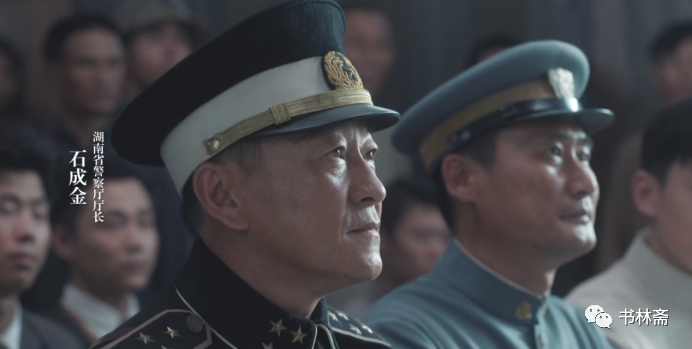
At this point, the interests of Zhao Hengti and the Yuezhou incident were actually the same. The Yuezhou incident was actually the product of the contradiction between Hunan and Hubei.
So let’s take a look at the timeline:
On September 9, 1922, workers on the Guangdong-Hankou Railway went on strike.
On September 10, 1922, the county council election for governor began and ended on September 27, 1922. Zhao Hengti was elected (previously he was only the acting temporary governor).
With this timeline, we can clearly understand why Zhao Hengti will not waver significantly during this time period.
After we analyze the two scenes about Zhao Hengti, we will find that this is not actually a drama about the development of our party from within our party, but a drama about how our party developed and grew from the overall perspective of the Republic of China. drama.
With this understanding, we will gain more by looking at how the Anyuan coal miners' strike is presented in the play.
First of all, we must first understand the regional characteristics of Anyuan Coal Mine. These three characteristics constitute the basis of the main contradictions of Anyuan Coal Mine, and have also caused Anyuan Coal Mine to become a natural powder keg.
Where is Anyuan?
Anyuan is located in Pingxiang City, Jiangxi Province.
Where are the coal mines in Anyuan transported to?
Shipped to Hanyeping Company, in Wuhan City, Hubei Province.
Where are the workers in Anyuan mainly from?
Hunan. Mainly people from Xiangtan and Liling.
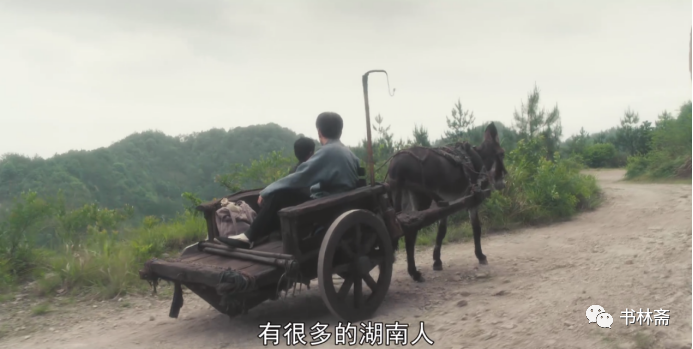
Okay, with this background, let's try to describe the picture of Anyuan Coal Mine.
During the Qing Empire, Sheng Xuanhuai introduced foreign investment and advanced Western mining technology to develop the Anyuan coalfield to solve the fuel needs of the Hanyang Iron Works. The main tunnel was dug and the Zhuping Railway was built. In 1906, the road and the mine were completed and put into operation. It became the first coal mine in China to adopt mechanical production, transportation, coal washing and coking. It was one of the top ten factories and mines in China at the time.
During the Republic of China, there were many warlords in various places. As we saw above, the conflict between Hunan and Hubei had something to do with the Yuezhou incident. So what about adding another one to Jiangxi?
The answer is that the interest structure here is extremely complex. The top level is Beijing's profits, followed by Hubei's coal mine demand, then Jiangxi's commission (while managers only have wages), and finally Hunan workers' wages.
In other words, many groups from the bottom up had demands to change the interest structure, so it eventually produced the most dazzling labor movement from 1921 to 1926.
Mao Zedong was the one who took advantage of this appeal.
The play directly shows how he went to Anyuan.
A few key points:
1. He came to Anyuan in the name of running a school through his uncle Mao Ziyun (who was the section chief of Section A of Anyuan Coal Mine at that time).
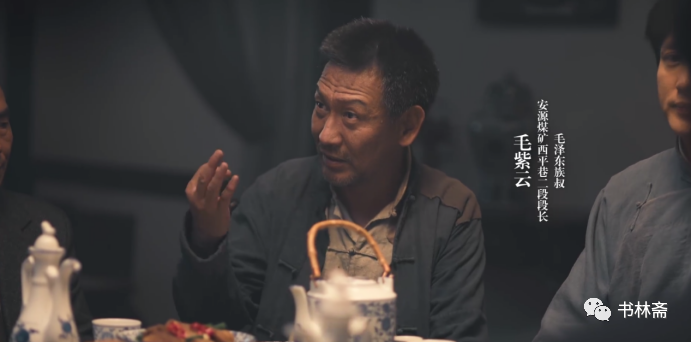
2. He is Anyuan wearing a mandarin jacket.
The former means that he did not arrive in Anyuan with the lowest status, but he also did not arrive in Anyuan with a high profile like Li Lisan later wrote directly to the mine director, but came as a relative of the middle-level speaker. The local interest structure will not have a too violent impact, and everyone will not be directly rejected, which is very conducive to his in-depth investigation.
The latter means that he came to Anyuan as an intellectual.
In the culture constructed by Confucianism, although the imperial examinations for scholars, farmers, industry and commerce disappeared, the attitude towards intellectuals in society remained the same. Therefore, when Mao Ziyun introduced Mao Zedong to the local commentators in Anyuan, he only said that Mao Zedong wrote to "Ta Kung Pao" By reading many articles, Mao Zedong can gain a lot of respect.
What's more, in Mao Zedong's later interactions with the miners, his image became more prominent, so much so that a world-famous painting appeared.
And in the same scene where Mao Ziyun introduces Mao Zedong, Anyuan's undercurrent is also expressed.
There were a total of five people present, none of whom were useless. Except for Mao Zedong and Mao Ziyun, there were three others.
Mine Manager Niu (the prototype should be Li Shouquan, probably one of the few historical figures not directly used in this drama), his later attitude was to acquiesce to the strike, because as mentioned above, they also received dead wages.
Captain Li (the prototype should be Zhou Weinan and Li Hongcheng), captain of the mine police team. As mentioned above, the local situation in Anyuan is complicated, so in terms of personnel arrangements for the mine police force, there is a conflict between the mine and the local administration of Pingxiang. Therefore, in the play, we can see the relationship between Director Niu and Captain Li His face is at odds with his heart, and his skin is smiling but his body is not smiling.
Daddy Hong, the talker of the Hong Gang. The local area is a prosperous place for the Ge Lao Hui, which has been here since the great uprising in the late Qing Dynasty. The Mine Police Force basically has many cadres from the north, but the basic members are also from the Hong Gang, so the Mine Police Force and The Hong Gang has always been competing for the right to speak at the grassroots level, and the mine director/manager is obviously more supportive of the Hong Gang.
So in this scene, it seems that everyone is targeting Mao Zedong, but in fact several groups of people staged a secret fight in front of Mao Zedong, and this secret fight was seen by him, and the subsequent story came into being.
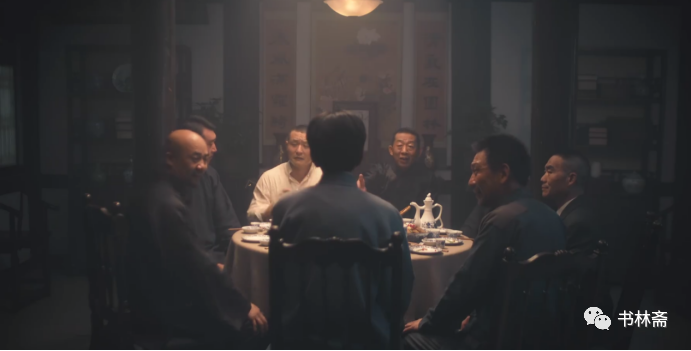
The story is that later Li Lisan and Liu Shaoqi came to Anyuan wearing mandarins or suits.
The story is that later during the strike, Li Lisan specifically formed an alliance with Daddy Hong, which was equivalent to stating his position and clarifying the interest structure (Li Lisan also used the same method after going to Shanghai).
The story is that because there are a large number of Hunanese in Anyuan, when the wages of these Hunan workers are raised, it will increase their purchasing power in their hometown market towns, expand the economic interests of Hunan landlords, and strengthen Zhao Hengti's rule in Hunan. Therefore, Regarding this matter, Hunan turned a blind eye.
The story is that Anyuan is located at the junction of Jiangxi and Hunan. When faced with the strike, Hunan did not want to contribute, but Jiangxi could not. Jiangxi is also between Hubei and Guangdong, and is an important front line for Sun Yat-sen's Northern Expedition. At that time, Jiangxi Governor Cai Chengxun had just taken office a few days ago, and he had not yet settled down. At this time, he could not control the people below at all, not to mention the strike. It helps to increase the power of Hubei, so Jiangxi can be said to have not sent too many troops.
So in such a layer-by-layer story, the Anyuan coal miners' strike achieved an unprecedented victory.
Okay, some friends may have forgotten our question above: Why did the Anyuan coal miners' strike launched by Mao Zedong, Li Lisan, and Liu Shaoqi succeed, while the Beijing-Hankou Railway workers' strike ended in the failure of the February 7th tragedy?
We're going to start summarizing now.
The answer is already written on the surface.
The Beijing-Hankou railway workers' strike occurred in the north. At that time, the Beiyang warlords were very powerful, and it occurred in Zhengzhou, which is the core area of an emerging railway city in the province. The force was relatively single and the incident was serious, so it would quickly trigger a rapid response from a single warlord. . This led to a huge disaster, the February 7th tragedy.
Whether it is Yuezhou or Anyuan we mentioned above, they are actually at the junction of the two provinces. In addition, Hunan, Hubei, and Jiangxi are located in the tug-of-war between the Southern Army and the Northern Army. The local warlords are weak and often need to fight with The various forces competed, which gave the strike a successful basis.
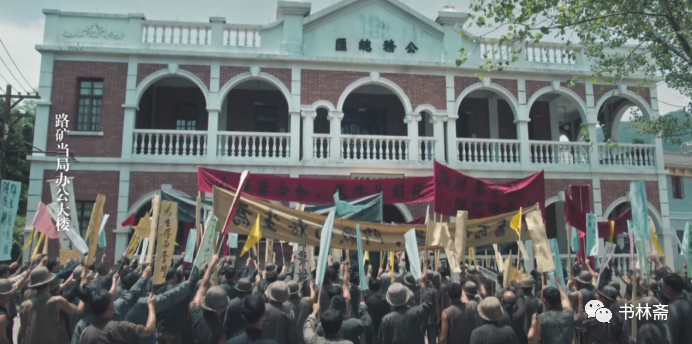
In addition, another important detail is that Zhang Guotao himself comes from a wealthy family in Pingxiang, so why do you think he went to Zhengzhou instead of Anyuan?
So what does this mean?
This means that although today we will emphasize more on the warlord wars in the early Republic of China, the other side of the Republic of China is still a republic in name only, because the warlords of all walks of life are not strong enough to annex larger territories. , so they can only respect such a nominal consistency one by one. In this dislocation, interest groups, large and small, have emerged. There are gaps among these interest groups, and with gaps there are opportunities to increase leverage.
And once faced with a situation without gaps, such as the Zhao Hengti and Hunan No. 1 Cotton Mill mentioned above, or the February 7th massacre, what they will face is only bloody massacre.
Yes, those who fully understand the interests and demands of various forces, and then manipulate them to strive for room for growth, are the politicians.
For example, the conflict between the Department of Political Science and the Department of Anfu behind the May 4th Movement, and the figures of Liang Qichao and Lin Changmin.
For example, the game between the old and new transportation departments of the Beiyang government behind the Changxindian railway workers' strike.
For example, there was back and forth between Li Dazhao, Feng Yuxiang (Northwestern Army), Wu Peifu (direct scholar), and Guo Songling (feng new army).
There are many more to this list, so I won’t list them all one by one.
In fact, in the social structure of the Ming and Qing Dynasties, there were countless small and medium-sized landowners. If any local government wanted to stabilize the grassroots, it had to redeem the small and medium-sized landowners, and such transaction costs would increase with the redemption. of.
In the end, it will be a systemic collapse.
Why did it crash?
Because the core of a political strategist is path dependence, through the social identity attributes of the political strategist itself, one can quickly find one's position in the existing interest structure (such as the social identity represented by Mao Zedong's mandarin jacket when he was in Anyuan), and then for such a society Structure for exchange of benefits.
This is why this play does not start with the opening of the first university, but with Mao Zedong’s founding of Hunan Self-Study University.
After convening the National Congress, Mao Zedong returned to Changsha after receiving the task of developing party members. His path was to establish a self-study university and find true comrades through schools and students.
Even though there was no funds for setting up a self-study university, he quickly obtained the funds through He Minfan, the head of Chuanshan Academy, obtained approval, and started recruiting. As for the recruited people, such as Xia Minghan, who betrayed his own class and joined the revolutionary ranks, the play also specifically emphasized his family background: the grandson of the Prime Minister of Liangjiang Camp and the son of the prefect of Zigui.
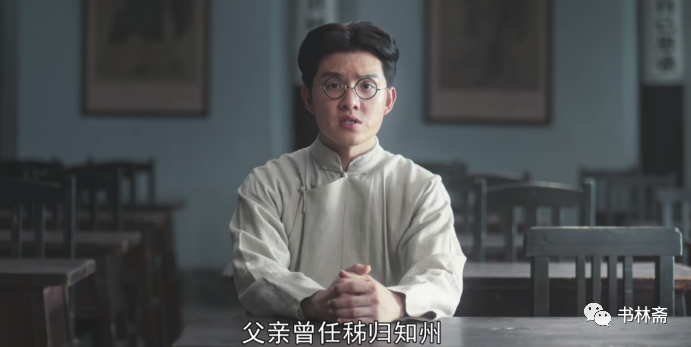
As for the other interviewees, the play also emphasizes a lot of background information: for example, the son of the cotton mill manager, for example, who saw Zhao Hengti amending the regulations and wanted to be an official. This shows the general social class that self-study universities can recruit.
Considering that one of the focus issues discussed when we convened the National Congress was whether he could become an official, we can see that when Mao Zedong established a self-study university through path dependence, he did find a group of like-minded people, but these were not fundamental.
So the first episode of this drama is actually a particularly meaningful farewell ceremony.
This was Mao Zedong's last attempt with his existing identity. In this attempt, he founded the Xinmin Society, participated in the Young China Society, and organized the Student Federation. But when he tried to do it again now, he found that he could not really Find peers quickly.
It can be seen that Mao Zedong was confused at the end of the first episode. This was his first step out of path dependence.
Yes, Mao Zedong himself changed his mind.
An important hidden thread in this play is the process of Mao Zedong changing his mind. It seems that he tried this and that, but in fact many of the behaviors of others will be observed by him and he will think about it.
When he tried to persuade Huang Ai and Pang Renquan, he was alerted by Huang Ai's words:
Have you ever been a worker? Mr. Zhongfu and Mr. Shouchang have probably never been workers, right?
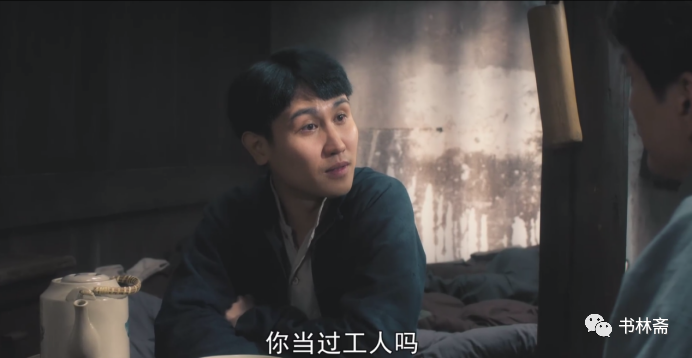
This sentence is so important.
It can even be said to be one of the themes of the show.
Although what is shown in the play is that after these words, Mao Zedong went to Anyuan after thinking about it.
But another line in the play is even more interesting.
The first episode spent a lot of time depicting the scene where Mao Zedong went to ask He Minfan to come out, which will make the audience feel that this is a very important role in the drama.
But the man soon disappeared.
His second scene appeared in the fourth episode, which was directly a conversation between Mao Zedong and him. During the conversation, He Minfan directly stated that he could no longer accept what they were doing now.
What's up?
Yuezhou, Anyuan.
As a man dressed as an old man, He Minfan had joined the Tongmenghui, promoted "New Youth", and participated in the early party establishment in Changsha, but he could never let go of where he came from.
So he chose another way to go.
In 1922, He Minfan resigned from the party. However, the play was a little more reserved. It was directly stated in "The Biography of Liu Shaoqi" that He Minfan was driven away by them.
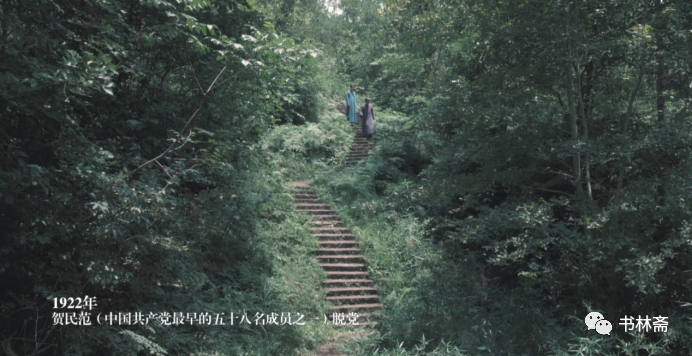
The extremely critical aspect of this scene is that it is not only the departure of He Minfan, but also the gradual departure of the identity of the non-productive intellectual represented by He Minfan from the depths of Mao Zedong's heart.
Mao Zedong's bow to He Minfan was also a farewell to his past. Of course, this is just the first goodbye.
He would say more and more goodbyes next.
What about the other side?
On the other side, let’s take a look at Chen Duxiu.
When Chen Duxiu appeared on the stage, he was listening to a play.
What are you listening to?
Huangmei Opera.
Chen Duxiu was a native of Anqing, and Huangmei Opera developed and grew in Wangjiang, Anqing. For Chen Duxiu, Anqing was not just his place of origin.
A very important reason why Chen Duxiu was able to go to Peking University to become the dean of liberal arts was that he was from Anqing. Peking University before Cai Yuanpei was controlled by the Tongcheng faction (Tongcheng was affiliated with Anqing). If Cai Yuanpei wanted to leverage this interest structure, the best way was to find an Anqing native and boil a frog in warm water to start the New Culture Movement step by step.
In September 1921, Chen Duxiu's first performance was while listening to an opera. In addition to the dialogue between him and Ma Lin, the concrete reaction of Huangmei Opera was also portrayed in him: he was a person who could not get rid of the old structure.
So Chen Duxiu was eventually left behind.
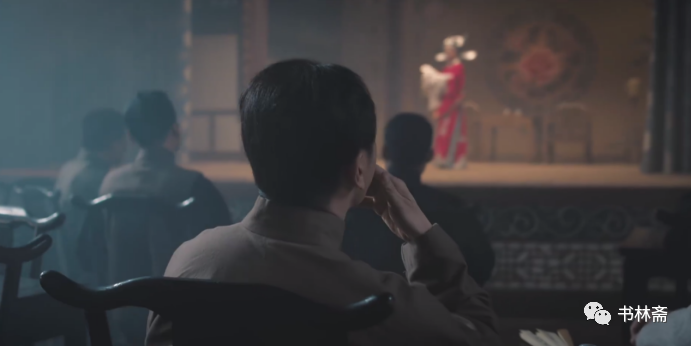
When Mao Zedong came on stage, it was a completely different situation. Mao Zedong took off his clothes and took a dip in the water.
Take off your clothes and let go of your identity.
This is a real shot, but also a metaphor. This is what this show wants to tell the most.
Small details like this abound in this show.
For example, in the first episode, while it was said that He Shuheng attended the first major, He Shuheng also asked Mao Zedong about funding. This will inevitably make people confused. In fact, although He Shuheng attended the first major, he left midway.
Another example is the appearance of Dong Yazi from the Anyuan firecracker family in the second episode. Although it is not stated clearly in the play, familiar friends will naturally find out that this is Wang Yaonan, one of the founders of the engineering corps of our army.
There is also Geng Wazi, a miner in Shuikou Mountain in the sixth episode. This is Geng Biao.
The names of the three Mao Zedong brothers start with the third brother. Yes, although Mao Zedong was the eldest son, he was the third in the family because two of his brothers died in infancy. Many years later, when Mao Zedong returned to his hometown and saw Wang Shulan, he would still call her Sisao.
This title is accurate in many places in this play.
It's not only the name that's accurate, but also the shape. Needless to say, Cai Hesen's hairstyle. When Mao Zejian and Yang Kaihui were together, one face was dark and the other was white. The class difference between the two was immediately highlighted.
It is also worth mentioning the state of Chiang Kai-shek, a young man from the Youth Gang who failed in speculation and was very depressed. Chiang Kai-shek loved playing chess but not Go all his life, so the beginning of the play specifically showed him as a bad chess player who believed that he had accomplished nothing. And this game of chess is very similar to Chiang Kai-shek's ending.
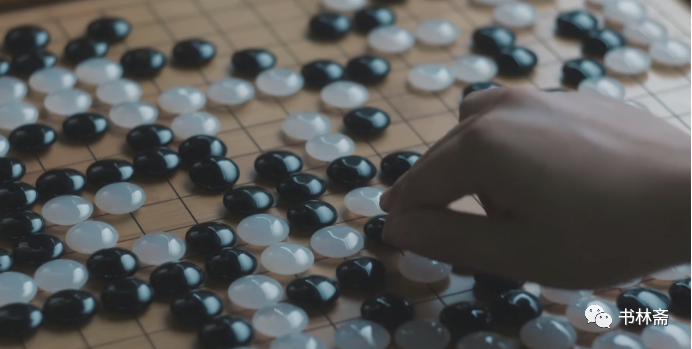
Of course, there are also some details in this drama that could be more elaborate. For example, Zhu Shaolian, a worker from Anyuan, is a train driver, educated, well-educated, and has a high status, so he can read Mao Zedong's articles and become a worker leader instead of the coal miner in the play. Of course, this is not a flaw. After all, the space is limited and it is impossible to arrange scenes about the internal situation of Anyuan workers.
Now we're going to wrap things up.
The drama "Ask the Cangmang" is not only about what Mao Zedong did in the six years from 1921 to 1927, but also why he did certain things and why he failed in certain things during these six years. .
So although the series has only aired for a few episodes, we can see that in the end, whether he is in Changsha, he is in Anyuan, he is in Shanghai, or he is in Guangzhou, the result is failure.
Because at this time he was still a strategist.
At this time, Zhao Hengti did not have the most intense conflict with him.
Until 1926.
As we said above, Zhao Hengti's core strength is the small and medium-sized landowners and county councilors in Hunan. Therefore, no matter how big the storm Mao Zedong caused before, it was not fatal to Zhao Hengti. He could suppress it while acquiescing, waiting and watching to move forward.
But when Mao Zedong finally decided to launch the peasant movement in 1926, it really fundamentally shook Zhao Hengti's foundation. That's why Zhao Hengti came to arrest him.
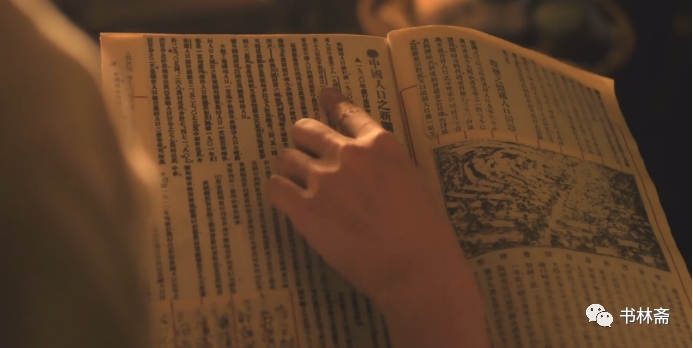
One comparison is Tang Shengzhi who participated in the Northern Expedition. Most of Tang Shengzhi’s military cadres came from the Baoding Lecture Hall. This was one of the important reasons why he was able to accept the Peasants’ Association at the beginning. However, after the Peasants’ Association truly grew, he also began to defect.
Yes, self-revolution is the most difficult.
What is a strategist? It is not to transform social relations, but to use the existing social interest structure to redistribute interests.
Therefore, the core thing that strategists need is points. If you have a share, I have room to operate, but it does not really change the situation. The more shares you share, the greater the transaction costs, and the larger the market that the strategist needs to maintain.
Therefore, when there are enough interested entities and the differences are large enough, the ultimate fate of all politicians is failure.
The man figured out that instead of taking advantage of both sides of the conflict, it was better to enter the situation alone and make himself a part of the conflict. So when he arrived at Jinggang Mountain, he no longer paid more attention to the external environment, but the internal development of Jinggang Mountain. As for the conflicts on the border between Hunan and Jiangxi, it is very important, but it is an external cause, not an internal cause.
Experience is available only to those qualified to apply for the experience. ——This sentence can only be understood by those who have experienced it personally.
So I absolutely believe that the man's final summary of "The Theory of Contradiction" is very related to his experience in the past six years. With these six years of choices, he could bid farewell to his classmates and teenagers, and bid farewell to his scholarly career.
Only then can he stop pointing out the country and inspire words.
Instead, hit the water in the middle of the current, and the waves will stop the flying boat.
The original title is "Kong Li: Mao Zedong, 1922, asking about the vastness, looking at the strong pine trees in the vast dusk", the public account is "Shu Lin Zhai" (Kongli1996) Weibo "Kong Li", Douban "Kong Li"
